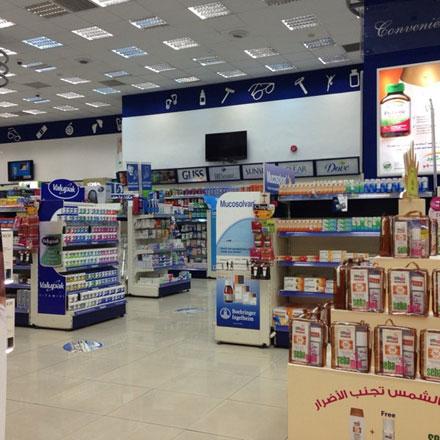You are here
Pharmacists to scale up protest ‘if no joint solution is found on draft system amendments’
By Ana V. Ibáñez Prieto - Apr 28,2018 - Last updated at Apr 28,2018
AMMAN — The general assembly at the Jordan Pharmacists Association (JPhA) on Friday formed a crisis management committee in order to address the recent amendments made by the legislative council to the draft system for the licensing of pharmaceutical institutions.
The decision comes in light of the syndicate’s annual meeting, where JPhA President Zeid Kilani approved the escalation of measures against the approval of the amendments made “without prior consultation with the union”.
“The syndicate showed its keenness to discuss the new licensing system, but no invitations to participate in the dialogues were extended,” Kilani said, expressing “surprise” over the approval of new regulations prior to any negotiations with the union.
“Despite our insistence on holding a dialogue to come up with solutions together, the legislation council held its meeting on Thursday and approved changes in several clauses without consulting us,” he stressed.
For his part, JPhA Vice President Mohammad Abu Assab noted that “the amendments introduced by the council contradict the agreements that the syndicate had with the Health Ministry’s licences and professions department”.
Street protests and the spread of messages across the media are some of the activities to be undertaken by the union against the approved amendments.
“Nonetheless, we are still willing to sit with the legislative council and discuss the system in order to find a joint solution,” Kilani noted, stressing that the union will wait until Sunday to let the council share the new clauses with the JPhA.
“If the new clauses are not up for discussion and negotiation by Sunday, the crisis management committee will start its lobbying programme,” he warned.
Earlier this month, the JPhA held a meeting in the presence of Health Minister Mahmoud Sheyyab and Minister of Justice Awad Abu Jarad to discuss the need to increase the minimum distance between pharmacies, which was set to be reduced to 200 metres in the new draft system.
“Jordan is currently suffering from clusters of pharmacies concentrated in the same location, while citizens based in other areas have to take transportation from their homes to access a pharmacy,” Kilani told The Jordan Times, stressing that “the minimum distance between pharmacies should be raised to 500 metres if we want all citizens to be able to access the service while preventing competition and malpractice”.
The union’s president also called for changing the methods used to measure the distance between pharmacies, stating that “the techniques used so far allow human errors, while a GPS measurement system between coordinates would be more accurate”.
“It is surprising to see the government refusing to adopt this measure, especially considering King Abdullah’s mandate to adopt technology to enhance policies and procedures,” Kilani concluded.
Related Articles
AMMAN — The Jordanian Pharmacists Association (JPhA) on Tuesday decided to cancel the escalation of measures against the recent amendments m
AMMAN — The government on Wednesday halted the decision to open the door for investments in pharmacies coming from non-pharmacists and compa
AMMAN — The pharmaceutical industry is on the “brink of collapse” if urgent remedial measures are not taken, Jordan Pharmacists Association


















